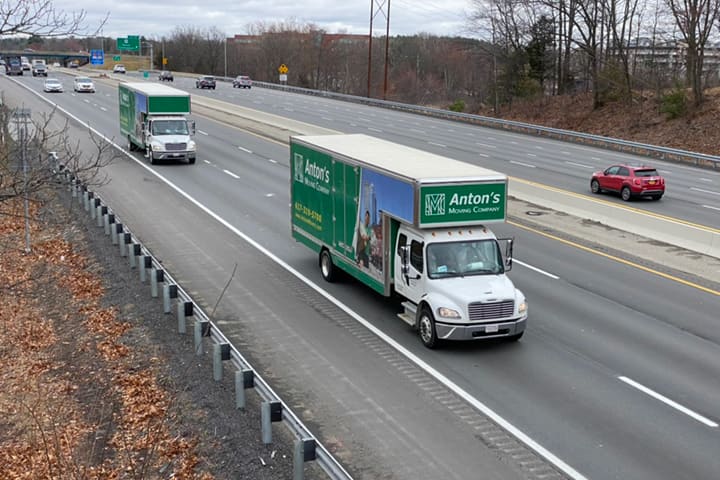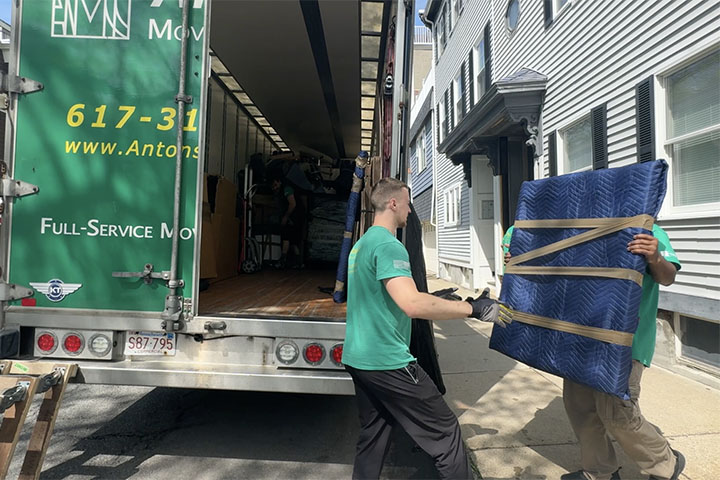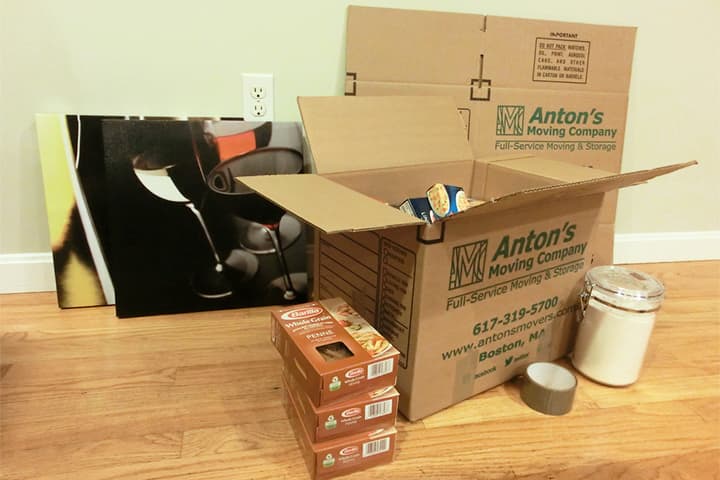Moving from Boston to Cleveland? Here's How to Get It Right
July, 2025 Time: - 11 minute read

Cleveland is already the next big thing, and there’s no denying it. People are starting to notice that the cost of living makes sense. You get more space, both inside and outside. And if you’re looking for an opportunity, there’s something happening in almost every industry.
But moving between two cities like these… It’s not a quick skip over a few towns. You need to be prepared for a full reset. That’s where this guide helps you: we will help you think ahead and plan smart so you meet the moving day as peacefully as possible. And if you decide you need a reliable moving team to step in, Anton’s Movers will have you covered.
Start With a Realistic Moving Timeline
Most people wait too long to start preparing - that’s their first mistake. If you wait until the deadline is staring you in the face, stress is almost guaranteed. Give yourself eight to twelve weeks to make decisions and adjust them if you need.
There’s a natural order to things once you start the process. Here are a few things to put on your early checklist:
- Let your landlord know you’re leaving. Most leases require at least 30 days' notice, but check yours. If you’re selling a home, start speaking with a realtor and plan for showings, repairs, and paperwork.
- Book your movers early. Especially in the spring and summer months, reliable companies fill up fast. If you already have a move-out date, get on their calendar before it slips away.
- If kids are involved, contact their school to arrange records transfer. Look into enrollment options in Cleveland. Each school district works differently, so you’ll want to get ahead of the process, especially for public placements.
- Order moving supplies in bulk. Boxes, packing paper, tape, labels, markers… everything you’ll need to pack efficiently. And think about your own travel plans. Are you flying or driving? Will you need time off work? Do you need to ship your car? Get those details figured out early.
Legal and Logistical Details You Can’t Skip
Some of the most frustrating moving headaches are the rules. And cities like Boston and Cleveland both have their quirks.
Permits in Boston
If you’re loading a truck on a Boston street, especially in areas with tight parking, you’ll likely need a moving truck permit. This isn’t a suggestion. Without it, you risk being ticketed or having your truck towed. It’s surprisingly easy to handle. Head to the City of Boston website and request a one-day moving permit at least three to four business days in advance. Once approved, you’ll need to post official signs 48 hours before your move so the city can enforce your reserved space.
There’s a small cost for both the permit and the signage. The fees are per meter, so if you need more space, say, for a large truck, you’ll pay a bit more. But it’s worth it. The permit gives you guaranteed curb access for your truck and protects you from the kind of surprise fines that can ruin an otherwise smooth move.
Truck Access in Cleveland
Cleveland is easier in some ways, but it still comes with local limitations. For example, parking availability in older neighborhoods like Tremont or Ohio City can become a problem. So can the street width. If your new place is on a narrow residential street, reach out to a relevant person to ask about loading and parking zones.
Check for any HOA rules about moving trucks if you’re moving into a residential complex. Some have time restrictions or limit truck access to certain days. It’s not unusual for movers to get delayed at the last second by rules no one mentioned. A quick phone call upfront saves you a world of confusion later.
Insurance
Accidents happen. Even with the best Boston movers, even with the best planning. Instead of stressing in advance, you need to know for sure that your things are protected once they’re out of your hands. What covers this is insurance. Most moving companies offer what’s called released value protection included in the cost. But it only covers about 60 cents per pound. So, your thousand-dollar TV might only be “worth” twenty bucks if it’s damaged.
That’s where full value protection or third-party moving insurance steps in. These will cover your items based on their actual value instead of their weight. Full value protection comes at a cost, but isn’t it a small price to pay for peace of mind?
Don’t forget to check your homeowners’ or renters’ policy, as well. Especially if you’re using professional movers, some policies extend limited coverage. But not all do. Call your provider to ask for exact details.
Choosing the Right Long-Distance Moving Company
Almost your entire move depends on the team you choose to move you. A long-distance certainly isn’t something you can wing, no matter how organized a person you are. The coordination and experience comes only for handling such moves for years. Here’s what to look for in Boston to Cleveland movers:
- Ask for license and insurance. This is a non-negotiable for a moving company. Ask for their USDOT number and verify it through the FMCSA website.
- Don’t accept verbal estimates. Always ask for written quotes and ask whether it’s binding or non-binding (the former is set, while the latter can change depending on weight and services).
- Think about your specific needs. Do you need help packing fragile items? Are you shipping a car or using temporary storage in Cleveland? The right company will offer flexible options.
- Prices often jump in summer. Expect higher rates and limited availability between May and September. Try booking as early as possible or consider off-peak timing.
Cost Breakdown: Don’t Get Caught Off Guard
The typical cost to move from Boston to Cleveland falls between $3,500 and $7,000. It depends on how much stuff you’re bringing, the size of the truck, how many people are needed for the job, and whether you’re adding on services like packing or storage.
That base price doesn’t include everything, though. Here’s what else might show up on your bill:
- Overnight stay: if your move is too long, you might need to stay somewhere mid-route. Budget for a day or two in a hotel just in case.
- Storage fees: These come up if your new place isn’t ready or if you’re staging your move over several days.
- Packing materials: Boxes, bubble wraps, and specialty containers are surprisingly expensive if you’re not careful.
- Insurance upgrades: These often get added last-minute. Build them into your budget early so they’re not a surprise.
Settling In: What to Handle Once You Arrive
The first few days are confusing. And stressful, if we’re honest. It’s okay to feel disoriented - it fades fast once you knock the first few things off the to-do list. Here’s where you can begin:
- Update your driver’s license and vehicle registration at the Ohio BMV or RMV in Massachusetts.
- Get utilities up and running: water, electric, internet, gas. Each neighborhood may use different providers, so check your local listings.
- Register to vote in your new district so you’re ready when elections roll around.
- Take some time to get to know your new area.
- Be ready for real winter. Lake-effect snow is serious business. Invest in snow tires or a reliable shovel if you’re parking on the street.
- Bookmark local service websites, city info pages and resources. It helps smooth those first few weeks.
Final Thoughts
You’re not just packing up one apartment and unpacking in another, so don’t treat your move like that. You’re stepping into a completely different rhythm in a completely different city. Such a change takes planning which can’t always be done on your own.
If everything starts feeling like too much for you to handle, let Anton’s Movers step in and carry the weight of the move. This way, you can pay attention to what matters most: settling into your new life. We know the route and understand every single curveball the road can throw at us. With us, a well-planned move isn’t just possible but rather planned in advance.


